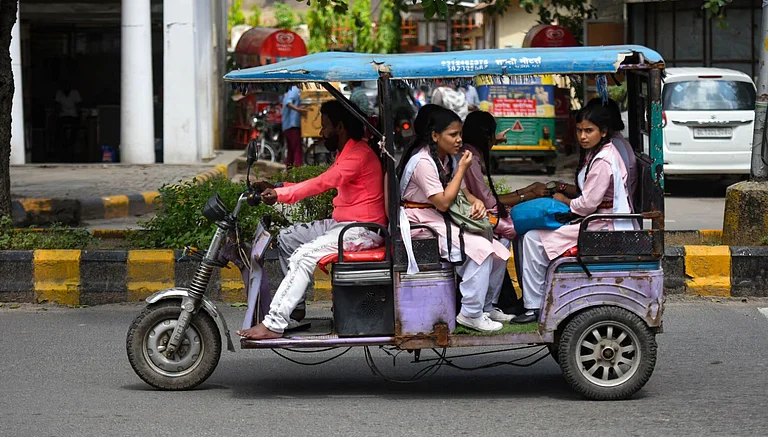CONTROVERSY seems to have become a constant companion to Biman Basu, the flamboyant member of the ruling young CPI(M) triumvirate in West Bengal along with Buddhadev Bhattacharya and Anil Biswas. This time a relatively innocuous quote in a local daily about the role of non-government organisations (NGOs) in the state has generated a storm of protests and much hate mail against him.
Basu is reported to have said that NGOs in the state should be brought under some kind of official control, either by the state government or the elected panchayats in the rural areas. Given the nature of their work, he said it was only proper that there be some regulatory mechanism.
It was the word control that made the NGOs see red. And the next day some newspapers editorialised the issue, even as the exchange snowballed into a controversy. But through it all, Basu remained unflappable. "I had never so much as mentioned the word control," he told Outlook. "I know what I am talking about as I myself have been actively associated with NGOs in specific projects in Bankura and Midnapore for quite some years now. I certainly do not want the state government or the panchayat to run those projects. What I did say, which was never reported, was that it would help everyone if the NGOs coordinated their work with the state government or the elected panchayats in the villages." Misquote or not, Basus remarks put the cat among the pigeons as far as the NGOs are concerned. Ironically, Basus call for some kind of regulation seems justified in many ways. For instance, even the number of NGOs active in the state is not knownfigures of 800 and 1,500 are officially mentioned simultaneously.
The controversy would not have gathered momentum but for the CPI(M)s uneasiness about NGOs and footloose private do-gooders. Politburo member Prakash Karat authored a comprehensive booklet on foreign-aided NGOs in India some years ago. Pointing to the covert political underpinnings of many NGO programmes, Karat had pleaded for official supervision. And with the Centre also taking a dim view of the activities of some NGOs, groups like the Lutheran World Services and OXFAM had drastically reduced their operations in West Bengal.
Observers argue that regulation becomes difficult if there are foreign financiers, who hardly ever visit India. Adds Basu: "Many people speak of their (NGOs) evangelist or other types of activity, but that is not my primary concern. My problem is different. Suppose there are 50 development blocks in a district. The state government has to take care of development in all, while an NGO works only in 10. What happens to the blocks adjacent to these 10, dont they feel deprived? Again, some NGOs can pay daily labourers more than the state government can afford. This creates problems for panchayats in securing manpower, not to mention the question of undermining the confidence of the elected panchayat members and workers."
This argument is only partially accepted by NGOS. Says Tirthankar Mukherjee of Swabhiman, which is active in health, agriculture and income generation projects in North 24 Parganas: "If Basu and his government were doing their job, we would not be there. Now he wants us to be under the state government, but the West Bengal government is not exactly an epitome of administrative efficiency. But I agree that there should be greater coordination between our work and that of the panchayats. "
Adds another NGO activist: "I think what worries men like Basu and his party is the fact that some panchayats discriminate in allotting official relief on political considerations. The corruption among some panchayat leaders is also a fact. In such cases, NGOs are the only source of relief for the common people. Conversely, the ruling Left Front feels its authority at the grassroots level is being steadily supplanted. They see the growth of the NGO movement as the embryonic form of a parallel power structure that will bypass both the state government and the panchayats."
In fact, Basu admits to this apprehension: "My only objection to non-government initiative is that everyone from the PM to the DM to the CM is frequently sidelined. In any case, I have already been vindicated. Now theres news that the CAPART at the apex level will monitor and take more interest in NGO activities all over the country." But thats no guarantee that hell keep quiet.






















